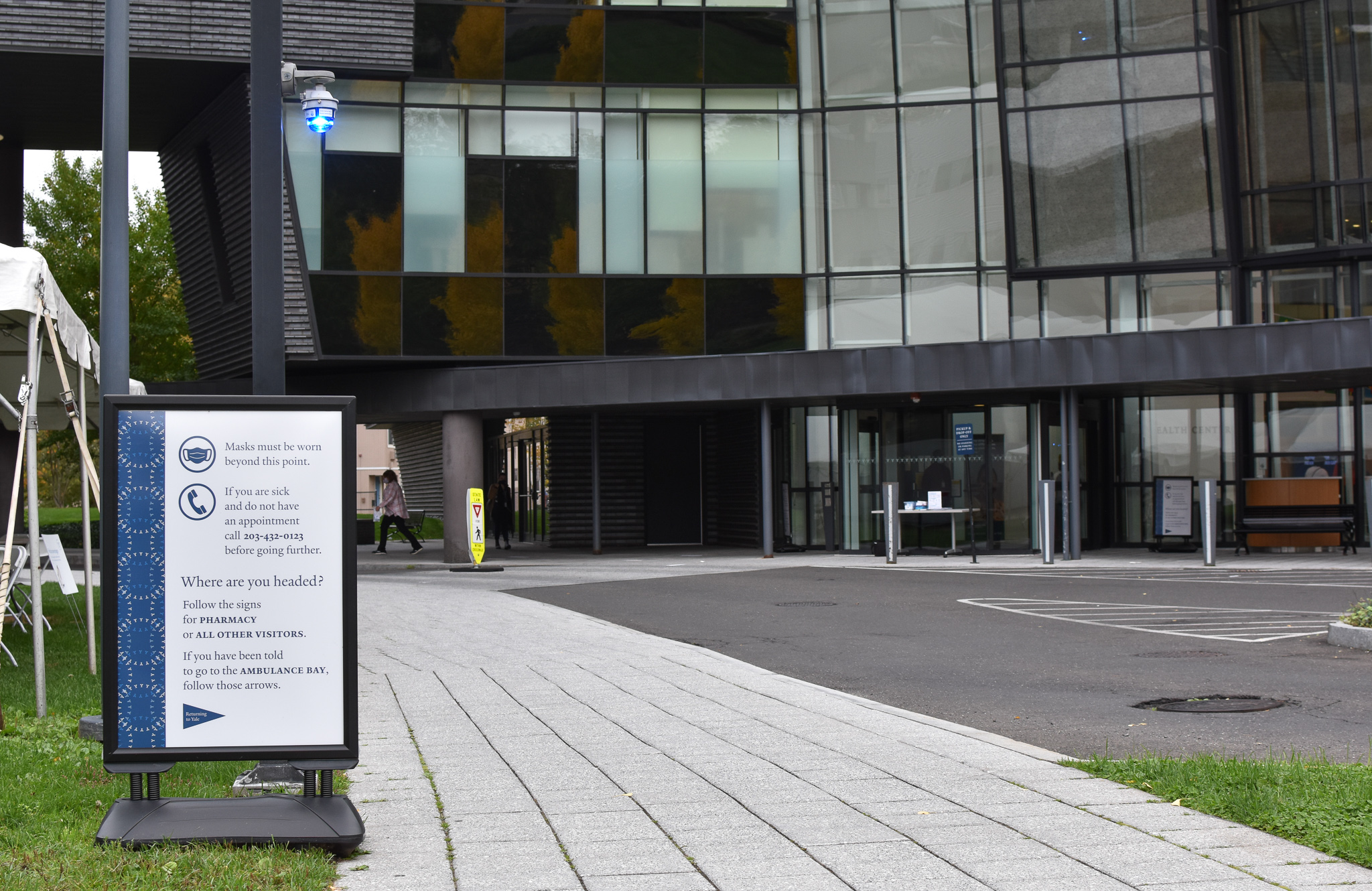
Karen Lin, Contributing Photographer
For most of the semester, off-campus students had the highest proportion of coronavirus cases among groups within the Yale community, according to the University’s COVID-19 dashboard. As of Nov. 12, they have the second-highest number of positive cases — with 41 of the University’s total 198 cases.
As the coronavirus pandemic rages on, testing has stood as the cornerstone of public health measures in universities across the United States. Faculty, staff, graduate and undergraduate students at Yale partake in ongoing COVID-19 screening programs. All enrolled students in New Haven — whether on or off campus — must be tested twice a week. Meanwhile, students in New Haven on a leave of absence also have access to free testing through Yale Health. Several off-campus students interviewed by the News weighed in on the University’s testing policies for students living off campus in New Haven, offering both praise and criticism.
“Students living off campus are not subject to the same rules that students in the [residential colleges] need to observe,” Chief Executive of Yale Health Paul Genecin wrote in an email to the News. “However, we hope that all students will act responsibly and avoid situations in which they place themselves and others at higher risk for COVID-19.”
At the beginning of the year, all students enrolled in residence, both on and off campus, were randomly assigned two days of the week to get tested — either Mondays and Thursdays or Tuesdays and Fridays. On their specific days, students must schedule a testing time through MyChart and show up to get tested at their assigned location — which is the same for everyone within a given residential college. Testing sites are located on Old Campus and in seven of Yale’s 14 residential colleges.
“I do think it is nice to walk through Pierson twice a week and just be reminded that we are all at Yale and on campus and it makes the whole situation feel slightly less strange and removed,” said Chloe Fink ’22, who is living in an off-campus apartment. “It’s bittersweet and partially sad, being in a residential college and seeing everything that we’re missing.”
Over the course of testing, some students have received false positives, such as Arinjay Singhai ’22, who also lives in an apartment off campus. He said the University handled the situation smoothly; after receiving the positive result, he was moved to a suite on Old Campus where he received food and was tested for the next two days. Those tests were negative, meaning he was free to go back to his apartment.
Others, such as Fink, have accidentally missed testing days. When Fink missed a test, she thought the best thing to do was go the following morning, after which she received an email from the University telling her she tested on the wrong day.
Fink pointed out that Yale’s random assignment of days has made it harder for students with busy schedules to make time on their assigned days for testing. She also wishes there were additional flexibility regarding picking testing days.
Even so, Fink said that the current system has its benefits.
“It still is very nice to have that sense of security when seeing friends, and we’re just going out in general around New Haven,” Fink said. “It’s a really important step Yale took to be responsible and respectful to New Haven and New Haven residents as well.”
In addition to following testing protocol, many off-campus students have worked to minimize their exposure to potential sources of infection.
Eliza Spinna ’23, who lives off campus, told the News that off-campus students tend to socialize most often with the people in their pods –– a system that she described as both convenient and safe.
According to Spinna, off-campus students in her social circles are trying to remain cognizant of their relationship with the New Haven community so as not to contribute to greater spread within the larger Elm City.
“The people in my circles have been really mindful of how they act, who they interact with and where they spend time,” she said.
Spinna also mentioned that some of her friends who are not enrolled but are living in New Haven have devised their own testing schedules, choosing to test twice a week to know their COVID-19 status.
According to Genecin, most of the cases within the Yale community thus far have been the result of small-group spread, which can arise in situations such as gatherings of friends or restaurant meals. Because COVID-19 symptoms are often mild or even nonexistent among young adults, Genecin explained this can lead to accidental transmission by people who are infected but unaware of their status.
Genecin said that the recent increase in cases in the Yale community over the past few weeks is consistent with statewide and nationwide upticks.
Yale uses anterior nasal self-administered swabs for asymptomatic tests and health care provider-administered nasopharyngeal swabs for testing symptomatic patients.
Maria Fernanda Pacheco | maria.pacheco@yale.edu
Amre Proman | amre.proman@yale.edu







